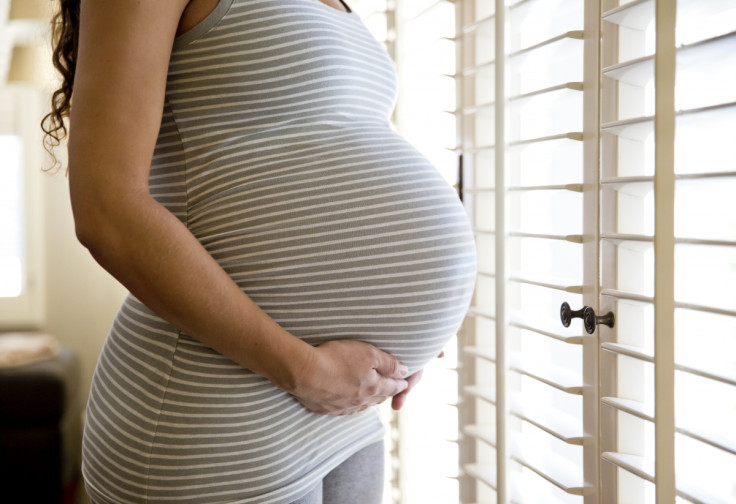Eclampsia in pregnancy: Sleep apnoea increases risk of life threatening condition by 195%
Pre-eclampsia, eclampsia and gestational diabetes were observed more frequently in women with sleep apnoea.

Women diagnosed with obstructive sleep apnoea are at a greater risk of suffering from serious pregnancy complications, scientists have said.
These include hypertensive disorders such as pre-eclampsia and eclampsia or gestational diabetes.
The study, presented at the American Thoracic Society's Annual International Conference, draws on the medical data from more than a million pregnant women in the US.
Pregnancy is thought to increase the risk of obstructive sleep apnoea due to the physiologic changes that women go through. It is hard to come back with precise estimates of how many pregnant women are affected, as many don't get diagnosed, but most of the data suggests that it could be between one and ten per cent.
What is certain is that sleep apnoea has been associated before with pregnancy complications, with studies showing for instance that obese women with sleep apnoea are more likely to suffer from pre-eclampsia and to give birth to babies in need of intensive care treatment.
However, most of the research to date has relied on much smaller samples than the one presented here. This is also the first study to identify a link between obstructive sleep apnoea and the risk of women being admitted into the intensive care units of hospitals or of having to go through hysterectomy – the removal of the womb.
Pre-eclampsia: The condition is characterised by women having high blood pressure (hypertension) and a protein in their urine (proteinuria). The condition is not too serious and generally improves with treatment but can is some cases give rise to eclampsia.
Eclampsia: This is a life-threatening medical emergency, causing a pregnant woman, usually previously diagnosed with preeclampsia to suffer from seizures or to fall into a coma.
Gestational diabetes: The condition is characterised by high blood sugar that develops during pregnancy but usually disappears after giving birth.
Large and diverse population
The researchers used data from the National Perinatal Information Centre – an organisation with a charter membership from major perinatal centres. They looked at the medical records of 1,577,636 women who had been pregnant between 2010 and 2014 in the US.
About 0.12 per cent had been formally diagnosed with obstructive sleep apnoea during pregnancy. They were typically older and more likely to be African-American and smokers. They were also more likely to have a history of hypertension, diabetes and coronary artery disease.
Controlling for a number of factors, including obesity, the scientists showed that pregnant women with the condition had a 174 per cent higher risk of being admitted in intensive care than women who had not been diagnosed with obstructive sleep apnoea and they were more likely to stay longer in hospital.
The risk of severe complications was also increased, by 126 per cent for hysterectomy and by up as much as 406 percent for pulmonary oedema (excessive fluid in the lungs).
Pregnancy-related complications were also more frequent, including hypertensive disorders such as pre-eclampsia (risk heightened by 122 per cent) and eclampsia (195 per cent) – a severe form of pre-eclampsia that can lead to seizures. Sleep apnoea was also linked to an increased risk of gestational diabetes.
These findings suggest that a diagnosis of obstructive sleep apnoa could warrant further investigations and a closer monitoring of these women during their pregnancies.
"Given that pregnancy is a 'window' into future cardiovascular and metabolic health, obstructive sleep apnoea is a diagnosis worthy of investigation in pregnancy," said lead study author Ghada Bourjeily, associate professor of medicine at Brown University. "Early intervention in these women, as well as in their children, may represent a great opportunity to offer treatment strategies that may offer long-term health benefits."
What is obstructive sleep apnoea?
The condition is quite common and occurs when the walls of the throat relax and narrow during sleep, interrupting normal breathing. It can lead to a number of serious health complications and regularly interrupt patients' sleep, with negative consequences on their quality of life.
Symptoms can include: loud snoring, noisy breathing and repeated short periods where breathing is interrupted by gasping or snorting.
Two types of breathing interruptions are in fact characteristic of the condition:
Apnoea: The muscles and soft tissues in the throat relax and collapse sufficiently to cause a total blockage of the airway. The airflow is blocked for 10 seconds or more
Hypopnoea: The airway is partially blocked of the airway with a reduction of airflow of greater than 50% for 10 seconds or more.
It is has hard to pinpoint a single cause of obstructive sleep apnoea but a number of risk factors have been recognised. For instance, men seem to be more susceptible than women. Other factors include being overweight, being more than 40, alcohol consumption and smoking, having a large neck, or a family history of the disease. More information on the NHS website.
© Copyright IBTimes 2025. All rights reserved.






















